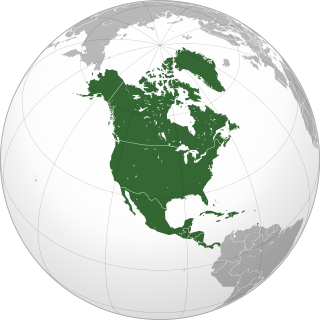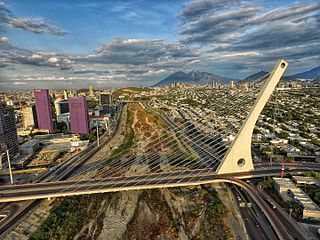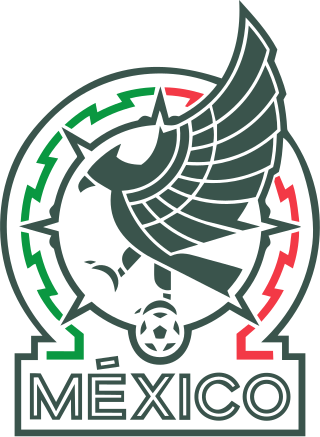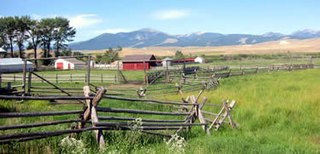Related Research Articles

Acapulco de Juárez, commonly called Acapulco, is a city and major seaport in the state of Guerrero on the Pacific Coast of Mexico, 380 kilometres (240 mi) south of Mexico City. Located on a deep, semicircular bay, Acapulco has been a port since the early colonial period of Mexico's history. It is a port of call for shipping and cruise lines running between Panama and San Francisco, California, United States. The city of Acapulco is the largest in the state, far larger than the state capital Chilpancingo. Acapulco is also Mexico's largest beach and balneario resort city. Acapulco de Juárez, Guerrero is the municipal seat of the municipality of Acapulco, Guerrero.

Mexico City is the capital and largest city of Mexico, and the most populous city in North America. It is one of the most important cultural and financial centers in the world. Mexico City is located in the Valley of Mexico within the high Mexican central plateau, at an altitude of 2,240 meters (7,350 ft). The city has 16 boroughs or demarcaciones territoriales, which are in turn divided into neighborhoods or colonias.

North America is a continent in the Northern and Western Hemispheres. North America is bordered to the north by the Arctic Ocean, to the east by the Atlantic Ocean, to the southeast by South America and the Caribbean Sea, and to the west and south by the Pacific Ocean. The region includes the Bahamas, Bermuda, Canada, the Caribbean, Central America, Clipperton Island, Greenland, Mexico, Saint Pierre and Miquelon, the Turks and Caicos Islands, and the United States.

New Mexico is a state in the Southwestern region of the United States. It is one of the Mountain States of the southern Rocky Mountains, sharing the Four Corners region with Utah, Colorado, and Arizona. It also borders the state of Texas to the east and southeast, Oklahoma to the northeast, and shares an international border with the Mexican states of Chihuahua and Sonora to the south. New Mexico's largest city is Albuquerque, and its state capital is Santa Fe, the oldest state capital in the U.S., founded in 1610 as the government seat of Nuevo México in New Spain.

Monterrey is the capital and largest city of the northeastern state of Nuevo León, Mexico, and the ninth-largest city and second largest metro area in Mexico behind Greater Mexico City. Located at the foothills of the Sierra Madre Oriental, Monterrey is a major North American business and industrial hub, as well as the most populous city in northern Mexico.

Albuquerque, also known as ABQ, Burque, the Duke City, and in the past 'the Q', is the most populous city in the U.S. state of New Mexico. Founded in 1706 as La Villa de Alburquerque by Santa Fe de Nuevo México governor Francisco Cuervo y Valdés, and named in honor of Francisco Fernández de la Cueva, 10th Duke of Alburquerque and Viceroy of New Spain, it served as an outpost on El Camino Real linking Mexico City to the northernmost territories of New Spain.

The Day of the Dead is a holiday traditionally celebrated on November 1 and 2, though other days, such as October 31 or November 6, may be included depending on the locality. The multi-day holiday involves family and friends gathering to pay respects and remember friends and family members who have died. These celebrations can take a humorous tone, as celebrants remember amusing events and anecdotes about the departed. It is widely observed in Mexico, where it largely developed, and is also observed in other places, especially by people of Mexican heritage. The observance falls during the Christian period of Allhallowtide. Some argue that there are Indigenous Mexican or ancient Aztec influences that account for the custom, though others see it as a local expression of the Allhallowtide season that was brought to the region by the Spanish; the Day of the Dead has become a way to remember those forebears of Mexican culture. The Day of the Dead is largely seen as having a festive characteristic.

Magdalena Carmen Frida Kahlo y Calderón was a Mexican painter known for her many portraits, self-portraits, and works inspired by the nature and artifacts of Mexico. Inspired by the country's popular culture, she employed a naïve folk art style to explore questions of identity, postcolonialism, gender, class, and race in Mexican society. Her paintings often had strong autobiographical elements and mixed realism with fantasy. In addition to belonging to the post-revolutionary Mexicayotl movement, which sought to define a Mexican identity, Kahlo has been described as a surrealist or magical realist. She is also known for painting about her experience of chronic pain.

Cancún is the most populous city in the Mexican state of Quintana Roo, located in southeast Mexico on the northeast coast of the Yucatán Peninsula. It is a significant tourist destination in Mexico and the seat of the municipality of Benito Juárez. The city is situated on the Caribbean Sea and is one of Mexico's easternmost points. Cancún is located just north of Mexico's Caribbean coast resort area known as the Riviera Maya.

The North American Central Time Zone (CT) is a time zone in parts of Canada, the United States, Mexico, Central America, and a few Caribbean islands.

Mexicans are the citizens and nationals of the United Mexican States. The Mexican people have varied origins with the most spoken language being Spanish, but many also speak languages from 68 different Indigenous linguistic groups and other languages brought to Mexico by expatriates or recent immigration. In 2020, 19.4% of Mexico's population identified as Indigenous. There are currently about 12 million Mexican nationals residing outside Mexico, with about 11.7 million living in the United States. The larger Mexican diaspora can also include individuals that trace ancestry to Mexico and self-identify as Mexican but are not necessarily Mexican by citizenship. The United States has the largest Mexican population in the world after Mexico at 37,186,361 in 2019.

Andrés Manuel López Obrador, also known by his initials AMLO, is a Mexican politician who served as the 65th president of Mexico from 2018 to 2024. He previously served as Head of Government of Mexico City from 2000 to 2005.

The Mexico national football team represents Mexico in men's international football and is governed by the Federación Mexicana de Fútbol. It has been a member of FIFA since 1929 and competes as a member of CONCACAF since 1961, of which it was one of the founding members. It was also a member of NAFC from 1946 to 1961, which was a predecessor confederation of CONCACAF and the governing body of football in North America at the time.
Miguel Ángel López Díaz was a Mexican professional wrestler and trainer, better known by his ring name, Rey Misterio. He was also referred to as Rey Misterio Sr. to distinguish him from his nephew.

Mexico, officially the United Mexican States, is a country in the southern portion of North America. Covering 1,972,550 km2, it is the world's 13th largest country by area; with a population of over 130 million, it is the 10th most populous country and has the most Spanish speakers in the world. Mexico is a constitutional republic comprising 31 states and Mexico City, its capital and largest city, which is among the world's most populous metropolitan areas. The country borders the United States to the north; as well as Guatemala and Belize to the southeast. It has maritime borders with the Pacific Ocean to the west, the Caribbean Sea to the southeast, and the Gulf of Mexico to the east.

Joaquín Archivaldo Guzmán Loera, commonly known as "El Chapo", is a Mexican former drug lord and a former leader within the Sinaloa Cartel. Guzmán is believed to be responsible for the deaths of over 34,000 people, and was considered to be the most powerful drug trafficker in the world until he was extradited to the United States and sentenced to life in prison.

The Mexican drug war is an ongoing asymmetric armed conflict between the Mexican government and various drug trafficking syndicates. When the Mexican military intervened in 2006, the government's main objective was to reduce drug-related violence. The Mexican government has asserted that their primary focus is dismantling the cartels and preventing drug trafficking. The conflict has been described as the Mexican theater of the global war on drugs, as led by the United States federal government.

The Sinaloa Cartel, also known as the Guzmán-Loera Organization, the Federation, the Blood Alliance, or the Pacific Cartel, is a large, transnational organized crime syndicate based in the city of Culiacán, Sinaloa, Mexico that specializes in illegal drug trafficking and money laundering.

The Mexican–American War, also known in the United States as the Mexican War, and in Mexico as the United States intervention in Mexico, was an invasion of Mexico by the United States Army from 1846 to 1848. It followed the 1845 American annexation of Texas, which Mexico still considered its territory because it refused to recognize the Treaties of Velasco, signed by President Antonio López de Santa Anna after he was captured by the Texian Army during the 1836 Texas Revolution. The Republic of Texas was de facto an independent country, but most of its Anglo-American citizens who had moved from the United States to Texas after 1822 wanted to be annexed by the United States.

A ranch is an area of land, including various structures, given primarily to ranching, the practice of raising grazing livestock such as cattle and sheep. It is a subtype of farm. These terms are most often applied to livestock-raising operations in Mexico, the Western United States and Western Canada, though there are ranches in other areas. People who own or operate a ranch are called ranchers, cattlemen, or stockgrowers. Ranching is also a method used to raise less common livestock such as horses, elk, American bison, ostrich, emu, and alpaca.
References
- ↑ "Perfil del legislador". Legislative Information System. Retrieved 21 November 2014.